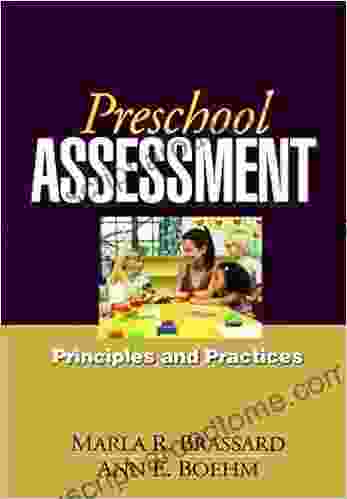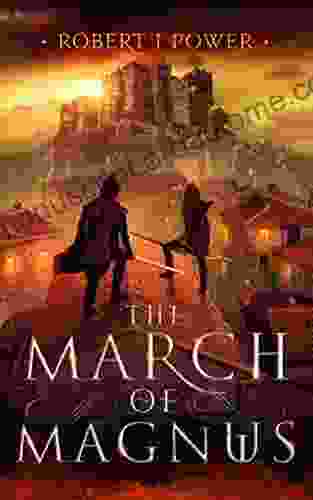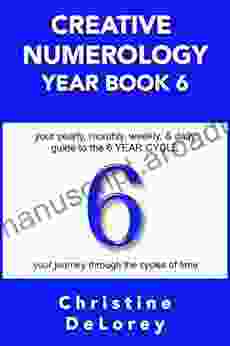Principles and Practices of Preschool Assessment

A Comprehensive Guide for Early Childhood Educators
Preschool assessment is an important part of ensuring that preschoolers are receiving the support they need to thrive. By assessing preschoolers, we can identify their strengths and weaknesses, track their progress, and make informed decisions about their education.
4.7 out of 5
| Language | : | English |
| File size | : | 8076 KB |
| Text-to-Speech | : | Enabled |
| Word Wise | : | Enabled |
| Print length | : | 658 pages |
There are many different types of preschool assessments available, and the specific assessments that you use will depend on the needs of your preschoolers and program. However, there are some general principles that apply to all preschool assessments.
Principles of Preschool Assessment
- Preschool assessment should be developmentally appropriate. This means that the assessments should be designed to measure skills and abilities that are appropriate for the age and developmental level of preschoolers.
- Preschool assessment should be valid. This means that the assessments should measure what they are intended to measure and that they are free from bias.
- Preschool assessment should be reliable. This means that the assessments should produce consistent results when they are given to the same preschooler at different times.
- Preschool assessment should be efficient. This means that the assessments should be easy to administer and score, and that they should not take up too much time.
- Preschool assessment should be ethical. This means that the assessments should be fair and respectful of preschoolers and their families.
Practices of Preschool Assessment
There are a variety of different practices that can be used to assess preschoolers. Some of the most common practices include:
- Observations. Observations are a direct way of collecting information about preschoolers' behavior and development. Observations can be used to assess a variety of skills and abilities, such as social interaction, language development, and cognitive development.
- Interviews. Interviews are a way of collecting information about preschoolers from their parents or caregivers. Interviews can be used to gather information about preschoolers' home environment, family history, and developmental milestones.
- Portfolios. Portfolios are collections of preschoolers' work that can be used to assess their progress. Portfolios can include a variety of items, such as artwork, writing samples, and photographs.
- Assessments. Assessments are formal tests that are used to measure preschoolers' skills and abilities. Assessments can be used to assess a variety of areas, such as language development, cognitive development, and physical development.
Preschool assessment is an important part of ensuring that preschoolers are receiving the support they need to thrive. By following the principles and practices of preschool assessment, early childhood educators can ensure that their assessments are developmentally appropriate, valid, reliable, efficient, and ethical.
Preschool Assessment Principles and Practices is a comprehensive guide to assessing preschool children. It provides practical advice on how to choose, administer, and interpret assessments to ensure that preschoolers are receiving the support they need.
4.7 out of 5
| Language | : | English |
| File size | : | 8076 KB |
| Text-to-Speech | : | Enabled |
| Word Wise | : | Enabled |
| Print length | : | 658 pages |
Do you want to contribute by writing guest posts on this blog?
Please contact us and send us a resume of previous articles that you have written.
 Book
Book Novel
Novel Page
Page Chapter
Chapter Text
Text Story
Story Genre
Genre Reader
Reader Library
Library Paperback
Paperback E-book
E-book Magazine
Magazine Newspaper
Newspaper Paragraph
Paragraph Sentence
Sentence Bookmark
Bookmark Shelf
Shelf Glossary
Glossary Bibliography
Bibliography Foreword
Foreword Preface
Preface Synopsis
Synopsis Annotation
Annotation Footnote
Footnote Manuscript
Manuscript Scroll
Scroll Codex
Codex Tome
Tome Bestseller
Bestseller Classics
Classics Library card
Library card Narrative
Narrative Biography
Biography Autobiography
Autobiography Memoir
Memoir Reference
Reference Encyclopedia
Encyclopedia Chris H Miller
Chris H Miller Chicago Tribune
Chicago Tribune Jeffery Combs
Jeffery Combs Virginia Loh Hagan
Virginia Loh Hagan Chip Jones
Chip Jones Celtic Thunder
Celtic Thunder Tom Grant
Tom Grant Chris Smith
Chris Smith Monica Brand Engel
Monica Brand Engel David Jacobsen
David Jacobsen Rafe Sagarin
Rafe Sagarin Charles R Figley
Charles R Figley Robert Chitham
Robert Chitham Charles Kenney
Charles Kenney Old Natural Ways
Old Natural Ways Charlotte Martinkus
Charlotte Martinkus Rob Willis
Rob Willis Maurizio Rossi
Maurizio Rossi Cheng Chih Wang
Cheng Chih Wang Christian Rainer
Christian Rainer
Light bulbAdvertise smarter! Our strategic ad space ensures maximum exposure. Reserve your spot today!

 Ashton ReedEnlighten Yourself and Others: The Ultimate Guide to Personal Transformation...
Ashton ReedEnlighten Yourself and Others: The Ultimate Guide to Personal Transformation...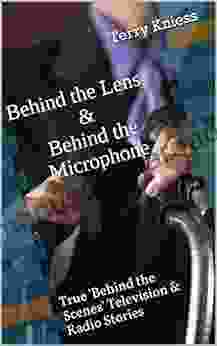
 Federico García LorcaBehind the Lens, Behind the Microphone: Unlocking the Secrets of Storytelling...
Federico García LorcaBehind the Lens, Behind the Microphone: Unlocking the Secrets of Storytelling... Connor MitchellFollow ·18.9k
Connor MitchellFollow ·18.9k Jessie CoxFollow ·7.4k
Jessie CoxFollow ·7.4k Truman CapoteFollow ·19.3k
Truman CapoteFollow ·19.3k Jaden CoxFollow ·18.3k
Jaden CoxFollow ·18.3k Randy HayesFollow ·3.5k
Randy HayesFollow ·3.5k Heath PowellFollow ·18.1k
Heath PowellFollow ·18.1k Yukio MishimaFollow ·14.4k
Yukio MishimaFollow ·14.4k Morris CarterFollow ·16.4k
Morris CarterFollow ·16.4k
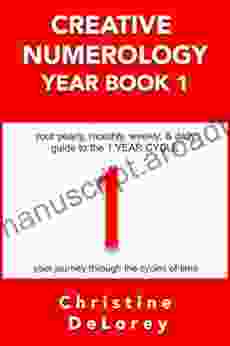
 Esteban Cox
Esteban CoxYour Yearly Monthly Weekly Daily Guide To The Year Cycle:...
As we navigate the ever-changing currents...
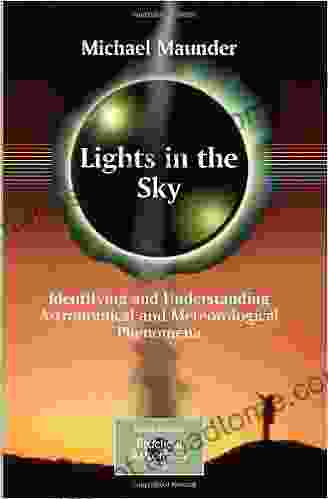
 George Orwell
George OrwellIdentifying and Understanding Astronomical and...
Prepare to embark on an extraordinary...
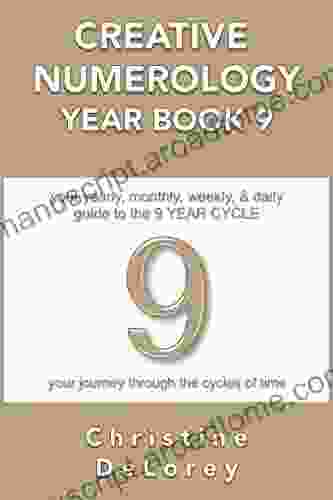
 Arthur Conan Doyle
Arthur Conan DoyleYour Yearly Monthly Weekly Daily Guide to the Year Cycle:...
Welcome to "Your Yearly Monthly Weekly Daily...
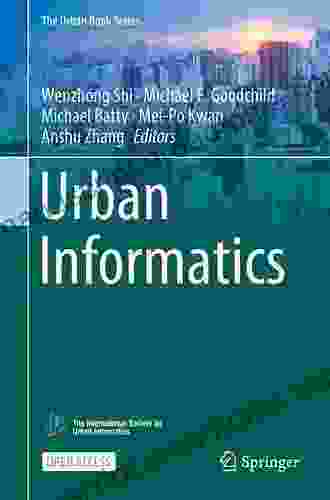
 Steve Carter
Steve CarterUrban Informatics: Unlocking the Secrets of Smart Cities...
An In-Depth Exploration of Urban...
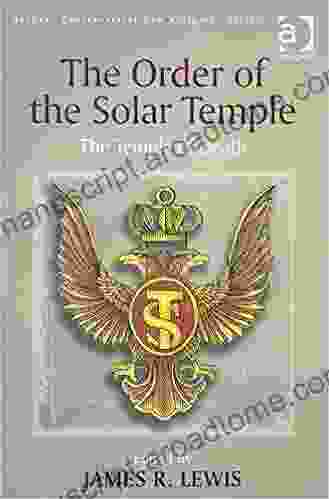
 Henry Hayes
Henry HayesUnveil the Secrets of the Order of the Solar Temple: A...
In the realm of secret...
4.7 out of 5
| Language | : | English |
| File size | : | 8076 KB |
| Text-to-Speech | : | Enabled |
| Word Wise | : | Enabled |
| Print length | : | 658 pages |


